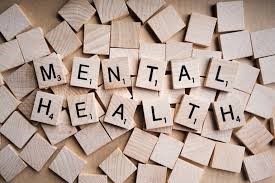The first official mental health awareness week occurred in 2001 and without a doubt there are now far more conversations about mental health and emotional resilience than ever before. The mental health foundation, on their website, identify that they have raised awareness on topics including stress, loneliness, sleep disorders and alcohol problems amongst many others. If we think about mental health and the workplace, we usually think about the problem of stress. Modern thinking has reviewed this slightly and suggests that in addition to stress we need to explore anxiety and depression and its relation to work too. We call these the Big 3 or CMHPs (Common Mental Health Problems).
However, this year, the main focus for the week is body image.
Most people living in the 21st century would probably agree that body image, whilst it has always been an issue for people, is a bigger problem now than it has undoubtedly ever been. With books available on Amazon that teach us that serious illnesses such as anorexia are lifestyle choices, we can see that we have a long way to go to reversing worrying trends of this type. But illnesses such as anorexia and bulimia are not the only mental health problems, we have that focus on body image.
One condition that psychotherapists often encounter is called Body Dysmorphic Disorder (BDD). Conditions like body dysmorphic disorder or often dismissed by others as being shyness whilst the truth is very different. People with body dysmorphic disorder tend to worry a great deal about their physical appearance, frequently about a specific area of the body but this is not vanity. In fact, rather than it being vanity a person with body dysmorphic disorder will often do everything within their power to stop people looking at them. Whilst we all might compare our looks with others from time to time, the sufferer of BDD will spend a great deal of that time doing this and almost always evaluating themselves negatively. Their attention to others might actually be a way to seek reassurance, hoping that somehow, they will notice that they are not as flawed as other people, yet they undoubtedly compare themselves negatively and find their attention to others has only served to reinforce the negative perception of their own appearance. People experiencing body dysmorphic disorder will often pick at their skin in order to try and make it flawless and go to great pains to conceal aspects of their appearance that mortify them. It is important to note here that many of us will engage in some scrutiny of our flaws and go to some attempts to cover them up – this is fairly usual and normal human behaviour and doesn’t cause us to dysfunction in our everyday lives. This basic level of scrutiny and self-care does not lead us to depression, self-harm and does not result in extreme difficulties in our personal lives. Needless to say, if you or anyone you know is experiencing symptoms of body dysmorphic disorder then seek help as soon as possible, either from your GP or your occupational health representative. This also goes for any other conditions that you might be concerned about irrespective of whether they are to do with body image or not.
Mental health awareness week gives us a great opportunity to reinforce the idea that the workplace can be a great arena to promote good, if not great mental health. The sense of achievement of going to work and completing your jobs well and knowing that you are part of a greater organization which is achieving bigger things than one person alone can provides us with a wonderful sense of purpose. Work can be a great friend to the human mind.

We also know however that if we are experiencing stress, anxiety or depression, our place of work can be a foreboding place and our colleagues are rarely trained to deal with us during these difficult moments. Mental Health Awareness programmes can change all of this and reverse the difficulties associated with work. It is also important to be aware that training of this type isn’t too intensive and seeks only to reduce fear and stigma whilst developing those interpersonal, human skills we all have. Well thought out tools are available that do not need years of university education to utilise with skill.
Here at Mind Health Development we are committed to improving the working lives of people and working with our partners have developed a new range of courses coming online in the next few weeks.
Mental health conditions can be scary. They can scare the person experiencing them, they can worry their loved ones and their colleagues.
If we can help in anyway, please, do not hesitate to get in touch.
Look forward to seeing the courses that will be on offer. I recently did a mental health first aider course which was most interesting and useful.
It’s good to see that in general areas of mental health seem to becoming more open to everyone.